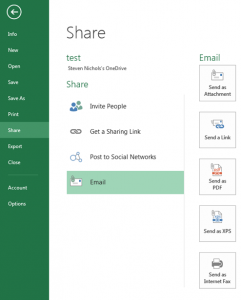
Emotional intelligence (EI) has become a vital trait for successful leadership, transforming how leaders interact with their teams and drive organizational success. Leaders who excel in EI demonstrate a strong ability to connect with their employees, navigate complex team dynamics, and inspire trust and collaboration. Unlike technical skills, which are essential for certain aspects of leadership, emotional intelligence helps leaders foster positive relationships, handle stress effectively, and motivate others—factors that significantly enhance leadership outcomes.
Understanding Emotional Intelligence in Leadership
Emotional intelligence comprises several core skills, each of which plays an essential role in effective leadership. These include self-awareness, self-regulation, empathy, social skills, and motivation. Each of these skills helps leaders manage their own emotions and guide their teams through challenges, enabling smoother communication and stronger performance.
Self-Awareness
Self-awareness is the cornerstone of emotional intelligence. Leaders who possess self-awareness understand their emotions, how they affect their actions, and how they impact those around them. By being in tune with their emotional responses, they are better equipped to handle stressful situations without letting emotions cloud their judgment.
For example, a self-aware leader recognizes when they are frustrated and steps back to reassess their approach, ensuring that their emotions do not negatively influence important business decisions.
Empathy
Empathy allows leaders to understand the feelings and perspectives of their team members. Emotionally intelligent leaders can put themselves in others’ shoes, fostering deeper connections and trust. This skill is especially important in leadership, where understanding individual and team motivations can significantly boost engagement and productivity.
Empathetic leaders can also manage conflicts more effectively, as they are attuned to the emotional undercurrents that drive disagreements. Addressing these emotional needs help resolve conflicts and strengthen team bonds.
Social Skills
Strong social skills are vital for leaders to build and maintain relationships. Leaders with high emotional intelligence excel at fostering teamwork, motivating others, and resolving conflicts. Their ability to communicate effectively, listen actively, and provide constructive feedback contributes to a positive work environment where employees feel supported and motivated.
By leveraging social skills, leaders create an atmosphere of collaboration, driving both personal and team success.
The Benefits of Emotional Intelligence in Leadership
Leaders who prioritize emotional intelligence benefit their organizations in several ways, creating stronger teams and more resilient work environments.
- Improved communication and collaboration: Emotionally intelligent leaders foster a culture of open communication, ensuring that everyone on the team feels heard and valued.
- Enhanced conflict resolution: By understanding the emotions behind workplace conflicts, leaders with EI can resolve issues more effectively, preventing disputes from escalating.
- Increased team engagement: Leaders who recognize and address the emotional needs of their team members inspire greater dedication and commitment, leading to higher overall performance.
Emotional intelligence is not only about managing oneself; it’s about creating an environment where others can thrive. Leaders who develop their EI are better equipped to navigate the complexities of leadership, resulting in stronger teams and more effective decision-making.
Emotional Intelligence and Team Dynamics
In team settings, emotional intelligence is essential for navigating the diverse personalities and communication styles that exist within a group. Leaders with strong emotional intelligence can identify and address potential friction before it escalates into conflict, guiding their team toward productive collaboration. This ability to manage interpersonal dynamics is key to maintaining a cohesive and high-functioning team.
Additionally, emotionally intelligent leaders are adept at recognizing and nurturing the strengths of their team members. By offering personalized feedback, coaching, and support, they encourage continuous development and help individuals reach their full potential.
Becoming an Emotionally Intelligent Leader
Developing emotional intelligence requires practice and self-reflection. Leaders who want to enhance their emotional intelligence should focus on:
- Seeking feedback from colleagues and mentors to gain insights into their emotional responses and leadership styles.
- Practicing active listening to understand team members’ concerns and motivations more deeply.
- Participating in emotional intelligence training programs to learn new techniques for managing emotions and improving interpersonal skills.
At AdvantEdge Training & Consulting, Inc., we offer specialized training programs that help leaders cultivate emotional intelligence and apply it effectively in the workplace. Through targeted workshops and personalized coaching, we equip leaders with the tools they need to enhance team dynamics, drive performance, and achieve greater success.
Elevate your leadership by fostering emotional intelligence. AdvantEdge Training & Consulting, Inc. provides the resources and expertise to help leaders at every level unlock their full potential. Contact us today to learn more about our training solutions and how we can support your organization’s leadership development journey.










